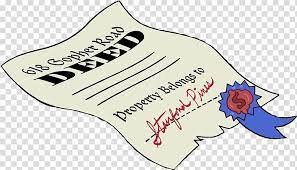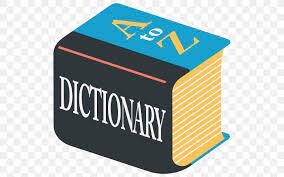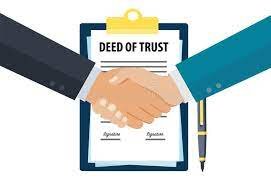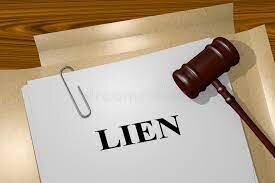
What is a Property Deed?
- A property deed is a legal document that serves as evidence of ownership or title to a property.
- It transfers the ownership of real estate from the grantor to the grantee.
- The deed contains the property’s legal description, boundaries, and any easements or restrictions.
- It officially transfers ownership rights when a property is sold or transferred.
- Types of property deeds include warranty deeds, quick claim deeds, and special warranty deeds.
Understanding the Essence of a Property Deed
Purchasing a property is a monumental milestone in anyone’s life. It not only provides a place to call home but also serves as a significant investment. However, before you can fully enjoy the fruits of property ownership, there’s an essential legal document you need to be acquainted with: the property deed. This article dives deep into the intricacies of property deeds, shedding light on their purpose, importance, and impact on property transactions in Northern Kentucky. And seriously, don’t panic because experienced real estate professionals can solve any problem.

“A Property Deed Is a Legal Document That Proves Ownership of the Property”
As the name suggests, a property deed is a legal document that serves as tangible evidence of property ownership. It includes vital information, such as a detailed description of the property and the names of its current owners. This deed is necessary when selling a house in Northern Kentucky, as it acts as proof of ownership and facilitates a smooth transfer of ownership from the seller to the buyer.

The Role of a Property Deed in Property Sales
When it comes to selling a house, having a comprehensive understanding of property deeds is paramount. As the seller, it’s your responsibility to provide a copy of the property deed to the buyer. This step ensures transparency and instills confidence in the transaction. Potential buyers may hesitate to purchase without a property deed, resulting in delays and frustration for all parties involved.

The Importance of a Clean Deed in the Closing Process
The closing process of a property sale is a critical juncture where all the necessary documents are reviewed, signed, and notarized. Among these documents, the property deed holds particular significance. To avoid any complications during the closing process, it’s essential to have a clean deed. A clean deed is free from any defects, liens, or encumbrances that could hinder the transfer of ownership. By ensuring the cleanliness of your property deed, you minimize the risk of delays or even the termination of the sale.

How a Title Company Can Assist with Property Deeds
Navigating the complexities of property deeds and their impact on property transactions can be daunting. Thankfully, there are experts available to guide you through the process. A title company handles various aspects of real estate transactions, including property deeds. Engaging the services of a reputable title company ensures that your property deed is properly prepared, reviewed, and validated. Moreover, a title company can update you on the status of your property deed, offering peace of mind during the sale process.

Frequently Asked Questions about Property Deeds
1. What if I can’t locate my property deed?
If you’re unable to locate your property deed, don’t panic. Contact the local county recorder’s office where the property is located. They maintain records of property deeds and can provide you with a copy or guide you through obtaining a new one.
2. Are there different types of property deeds?
Yes, there are various property deeds, each serving a different purpose. Common types include warranty deeds, quitclaim deeds, and grant deeds. Understanding the specific type of deed associated with your property is crucial to ensure the proper transfer of ownership.
3. Do I need a lawyer to handle my property deed?
While not mandatory, consulting with a real estate attorney can be beneficial when dealing with property deeds. They can provide legal advice, review the deed for any potential issues, and ensure a smooth transfer of ownership. Having a lawyer by your side can offer additional protection and ensure your interests are safeguarded.
4. What is the role of a notary in the property deed process?
A notary plays a crucial role in validating the property deed. They are responsible for witnessing the signing of the deed and confirming the parties’ identities. The notary’s signature and seal on the deed indicate that the document has been executed properly and legally.
5. Can a property deed be transferred or sold?
Yes, property deeds can be transferred or sold. When you sell a property, you transfer the ownership rights to the buyer through a deed. The new owner’s name will be added to the deed, and it will be updated accordingly. It’s essential to follow the proper legal procedures and consult with professionals to ensure a smooth transfer of ownership.
6. How long does it take to obtain a property deed?
The timeframe for obtaining a property deed may vary depending on several factors, such as the efficiency of the local county recorder’s office and any potential issues or complexities with the property title. Generally, processing and receiving a property deed can take several weeks. Working with a title company can help expedite the process and provide updates on the status of your deed. We have a lot of experience working with title companies and fixing deeds, and we’d love an opportunity to help you with yours, click HERE for more information.

Conclusion:
In conclusion, a property deed is a vital legal document proving property ownership. It serves as tangible evidence of your investment and provides confidence to potential buyers when selling a house. Ensuring you have a clean deed without any defects or encumbrances is crucial for a smooth closing process. Engaging the services of a reputable title company can alleviate the complexities associated with property deeds and provide you with status updates throughout the transaction.
Remember, a property deed is not just a piece of paper; it represents your stake in a valuable asset. Take the necessary steps to understand and protect your ownership rights by familiarizing yourself with the property deed process and seeking professional guidance.

Local Honest Homebuyer
And here is an offer that is hard to refuse; reach out to us, and we’ll help you. We are local real estate buyers, and we can answer your questions. Check out our Google reviews, LOCAL HONEST HOMEBUYER GOOGLE REVIEWS
